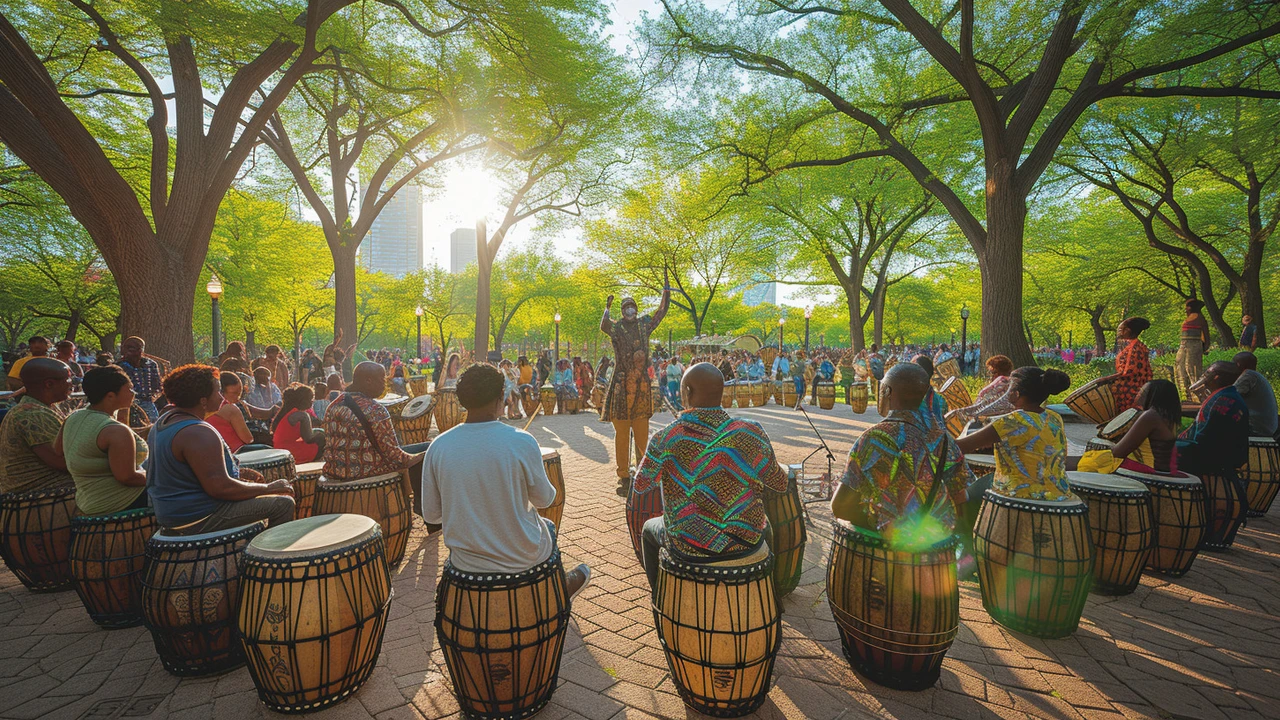The Intricate Symphony: Instruments Mending the Social Fabric
Ah, can you hear that? The soulful sound of a violin, the powerful roar of a drum, the mesmerizing strum of a guitar. Every pluck, beat, and hum is not just an expression of emotion but a catalyst for healing, connecting and transforming. For eons, the power of music has been utilized as a tool for social change; it speaks the language of the heart and resonates with the symphony of the soul. Being a mother of two energetic, music-loving kiddos - Flynn and Winona - has only rekindled my enamorment with music and the magic it wields, especially in this ever-evolving social landscape!
Beats, Bars and Bonds: The Social Construct of Music
Music is not just sound; it's art, language, science, and, most importantly, an integral part of our social construct. You might have noticed how myriad cultures identify with different musical styles if you've ever attended a Balinese gamelan performance or an Irish folk dance. Our tastes in music, the instruments we play, and the way we interpret different sounds indirectly influence our identity, social behavior, our day-to-day interactions, and the way we understand the world. It's like a shared soundtrack between individuals, bridging gaps born out of differences in language, ethnicity, or generations. Being a mother has helped me relate to this. I can’t even count how many times a swift jazz session at home has ended sibling squabbles between Flynn & Winona and turned into a dance gala!
Battle-cries of Brass and Strings: Music as a Medium for Social Change
From the drums of war to the chants of peace; music has been woven into the very fabric of our societal norms. It has, time and time again, proved to be an effective medium for social change. Imagine Bob Dylan humming "Times They Are a-Changin'", the anti-apartheid songs during the horrific era of Apartheid in South Africa, or the indigenous songs and dances fighting for cultural preservation and recognition. I remember watching a documentary on how rock music instigated youth rebellion against state censorship in the technicolor days of the 60s. The soundwaves formed a subliminal bridge that urged people to question, resist, and change.
Singing the Stories: Empowerment and Engagement
Every song tells a story, and in these narratives, we often find the empowerment and engagement for social change. Music and musical instruments act as a mirror reflecting societal issues often overlooked. For instance, songs against domestic violence help initiate conversations on an otherwise stigmatized topic. It gives a voice to the voiceless, confidence to the oppressed, and an avenue to share their experience. But, the power of music isn't exclusive to a large scale societal overhaul. It can be a leeway to everyday issues too. You know, days when Flynn comes home upset about school bullies, a heart-to-heart with him over a piano lesson about bravery and kindness has more impact than just a lecture. It’s uncanny but all too magical!
Musical Instruments: Carriers of Cultural Identity
Didgeridoos, sitars, djembes, ukuleles, each culture has its characteristic instrument that resonates with its history, traditions, and societal norms. These aren't just pieces of wood or metal; they carry the essence of cultural identity. The sound from these instruments is often raw, beautiful, and filled with rich layers of history, like a melodic storybook. This was a notion I realized when I saw my little girl, Winona, dabble with the aboriginal didgeridoo we had at home. Curiosity piqued, she passionately listened to the history behind it, humbling herself before a culture different from hers. It was heartwarming to see her grow not just as an individual but as a respectful global citizen.
Harmonies from the Heart: Music as a Therapeutic Tool
Music has been, without any doubt, a therapeutic tool for ages. It soothes our nervous system, relieves stress, and provides an outlet for emotions. Plenty of studies validate how music therapy has helped in dealing with mental health issues, autism, and dementia. But, you don’t need a professional to tell you that, do you? We’ve all had shabby days when we just pick up an instrument – be it the smooth guitar, the rhythmic drums, or the calming piano – and just lose ourselves to the ebb and tide of its melodies. In fact, if I have to confess, amidst hectic schedules and endless parental chores, my trusty old ukulele is my go-to sanctuary!
So, let’s strum the guitar of unity, blow the trumpet of change, sync to the drumbeat of empathy, dance to the rhythm of equality, and harmonize to the melody of love. After all, 'without music, life would be a mistake' right?

